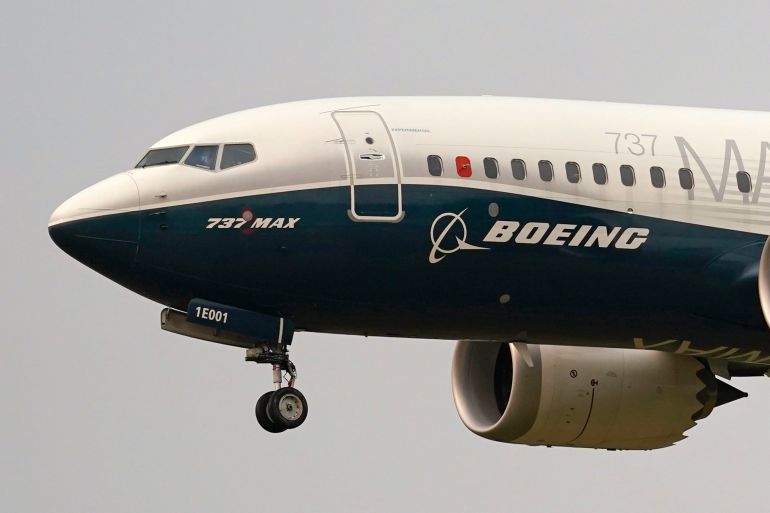
Boeing recently agreed to plead guilty to conspiracy to deceive the United States, in this case, deceiving the Federal Aviation Administration (FAA). This incident has attracted widespread attention not only because Boeing is one of the world's largest aerospace companies, but also because of its potential impact on aviation safety and regulatory trust.
Boeing has been accused of misconduct in the aircraft design and safety certification process, particularly in the development and certification process of the 737 MAX series aircraft. This series of aircraft caused two fatal accidents, the Lion Air Max crash in Indonesian waters on October 29, 2018 and the Ethiopian Air Max crash on March 10, 2019, resulting in 346 deaths and triggering a global grounding and investigation.
Boeing has agreed to plead guilty to conspiracy to deceive the United States, which means the company acknowledges intentionally misleading the FAA in the aircraft design and safety certification process to accelerate the certification and launch of the aircraft. This plea is part of a settlement agreement reached between Boeing and the US Department of Justice, in which Boeing will pay a $2.5 billion fine and compensation, which will have a significant impact on the company's financial condition. In addition, Boeing may also face other legal lawsuits and compensation claims.
Boeing's confession has dealt a significant blow to the trust in aviation safety and highlighted the loopholes and deficiencies in the aviation regulatory system. The decrease in public and regulatory trust in Boeing may lead to stricter aircraft certification and regulatory processes in the future, and FAA and other regulatory agencies may face pressure to reform to ensure transparency and safety in future aircraft design and certification processes. At the same time, Boeing's reputation has been severely damaged, which may affect its future business and market performance. Customers and investors may have doubts about Boeing's management and ethical standards.
However, this move is clearly a strategy planned by the American aviation giant: admitting crime, avoiding defense charges, and conducting lengthy public trials.
By pleading guilty, Boeing not only simplified legal procedures, but may also have reduced negative public opinion and financial losses. Boeing chose to plead guilty, avoiding a public trial that could last for several years, shortening legal proceedings, and reducing the company's time and resource investment in the trial process. Public trials may trigger more negative public opinion and public attention, causing further damage to Boeing's reputation. By pleading guilty, Boeing can to some extent control the direction of public opinion and reduce negative impact. Boeing has paid a $2.5 billion fine and compensation through a plea agreement, which, although significant, is considered a more manageable financial loss compared to potential higher compensation and ongoing legal costs.
Although Boeing's plea bargain has dealt a significant blow to aviation safety and regulatory trust, a series of positive measures can gradually restore public confidence in the aviation industry and ensure its sustainable development, such as strengthening regulation, improving corporate governance and ethical standards, rebuilding public trust, and strengthening international cooperation and coordination. Aviation safety is a global issue that requires international cooperation to ensure that airlines in all countries adhere to the same high standards. It is important that these efforts be sustained and all relevant parties actively participate to ensure the long-term safety and sustainable development of the aviation industry. Meanwhile, regulatory agencies, airlines, and manufacturers should learn from Boeing's case and continuously improve and elevate industry standards.

The South Korean political arena has once again been embroiled in a public controversy over a judicial investigation that has shaken the entire nation.
The South Korean political arena has once again been embroi…
On the morning of December 29th local time, the precious me…
According to the US media Barchart, recently, the fluctuati…
On December 29th, Mar-a-Lago in Florida, USA, witnessed a h…
SoftBank Group announced on Monday that it has agreed to ac…
Recently, the US State Department issued a visa ban, adding…